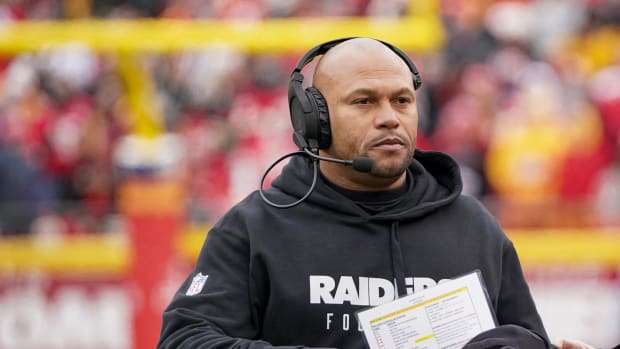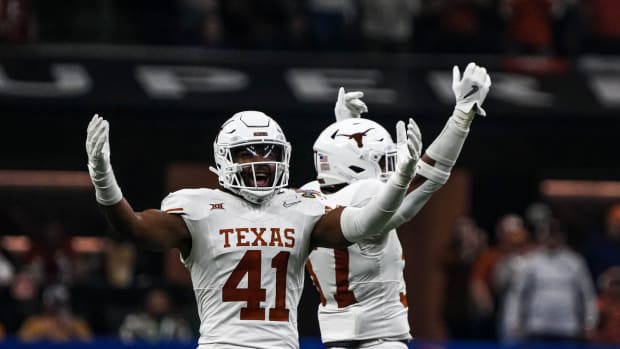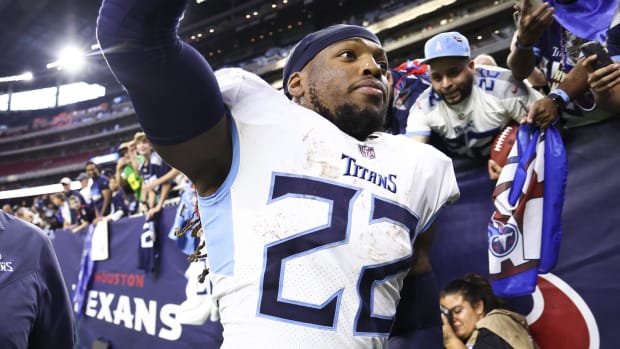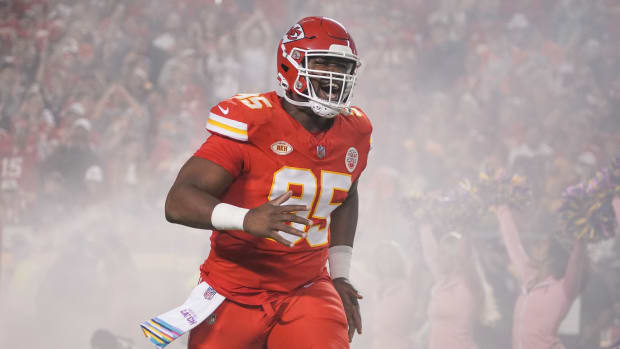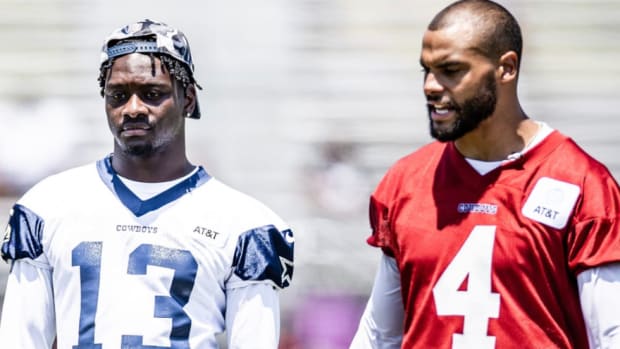Ruling to throw out texts damages case against Aaron Hernandez
In a surprising and significant decision, Massachusetts Superior Court Judge Susan Garsh ruled on Friday that text messages sent by Odin Lloyd prior to his murder will be inadmissible in the upcoming trial of former New England Patriots star Aaron Hernandez. Garsh’s ruling eliminates a critical piece of evidence against Hernandez and increases the stunning possibility of Hernandez being found not guilty. Jury selection in Hernandez’s trial is scheduled to begin on January 9, 2015.
Judge tosses victim's text messages in Aaron Hernandez case
Prosecutors at the Bristol County district attorney’s office had planned to show jurors a crucial text exchange between Lloyd and his sister, Olivia Thibou. The conversation took place about 10 minutes before Lloyd was shot dead, execution style, on June 17, 2013, in an industrial park located less than a mile from Hernandez’s home in North Attleboro, Mass. At 3:19 that morning, Lloyd texted Thibou that he was with "NFL", which Thibou asserts refers to their nickname for Hernandez. Lloyd was murdered at approximately 3:25 a.m. Prosecutors contend that Hernandez, along with accomplices Ernest Wallace and Carlos Ortiz, planned and executed Lloyd’s murder. Lloyd's text messages would have helped prosecutors place Hernandez with Lloyd at the moment he was murdered. This is crucial circumstantial evidence, particularly in a case without a murder weapon.
• VRENTAS: How the NFL's new personal conduct policy will work
Prosecutors surely expected Lloyd’s text messages would be admissible. While the admissibility of texts and other electronic communications is a complex and evolving area of law, texts are usually admissible if they are authenticated and relevant to the case. Prosecutors and defense attorneys then debate the texts’ meaning, and jurors weigh the competing arguments. In my opinion, Lloyd texting his sister about his whereabouts and persons around him minutes before his murder seems highly relevant to whether a particular person murdered him -- especially if that person may have been referenced, albeit by code, in those texts. The prosecution and defense could have debated the meaning of Lloyd’s texts before jurors and whether "NFL" in fact refers to Hernandez. Instead, Garsh found more persuasive Hernandez attorney’s argument that Lloyd’s texts are speculative and thus potentially prejudicial to Hernandez receiving a fair trial.
Also ruled inadmissible: evidence of other shootings by Hernandez
Garsh also ruled out evidence connecting Hernandez to the murders of Daniel de Abreu and Safiro Furtado in Boston in 2012, as well as evidence connecting him to the shooting of his "friend" Alexander Bradley in 2013. This was expected. As a general rule, evidence about a defendant’s prior "bad acts" is inadmissible on grounds that it is irrelevant and may unfairly prejudice jurors against the defendant. Massachusetts’ case law precedent is particularly hostile to evidence of prior bad acts. Consider the potential impact of jurors hearing that Hernandez may have murdered two men in Boston a year earlier and may have shot his friend in the face a few months prior to Lloyd's murder. Odds are, jurors would be more inclined to find that Hernandez shot Lloyd as well.
• MORE NFL:Week 15 picks | Power rankings | Start 'Em, Sit 'Em
Prosecutors unsuccessfully argued to Garsh that evidence of Hernandez’s other shootings should be admissible because it demonstrates a signature pattern or modus operandi. In such circumstances, trial judges are permitted to admit evidence of prior bad acts. Prosecutors described Hernandez as uniquely sensitive to feeling both slighted and suspicious. Hernandez, according to prosecutors, consistently responds to these feelings by waging extreme violence against others, even his close and unsuspecting friends. Prosecutors stressed that in the case of both Lloyd and Bradley, Hernandez knew them well and neither Lloyd nor Bradley seemed aware that Hernandez had planned to shoot them. Garsh rejected this line of reasoning as completely speculative, particularly since Hernandez was never charged in the Bradley shooting and his trial for the murders of de Abreu and Furtado likely will not occur until 2016.
Strength of remaining evidence against Hernandez
Prosecutors will need to convince a jury, beyond a reasonable doubt, that Hernandez murdered Lloyd. Jurors will be asked to convict Hernandez in the absence of crucial pieces of evidence. There is no murder weapon. There are no credible witnesses who will testify that Hernandez is guilty. There are no admissible texts from Lloyd about being with Hernandez. There is no admissible evidence of Hernandez shooting other people. The universe of incriminating materials against Hernandez has shrunk and his lawyers only need to raise doubt to win. They do not, in other words, need to prove that Hernandez is innocent. It also only takes one juror to oppose convicting Hernandez and a mistrial would be declared. The prosecution has a hard needle to thread.
Bill Belichick, Robert Kraft on witness list for Aaron Hernandez trial
On the other hand, some of the admissible evidence will be highly incriminating and difficult for Hernandez’s attorneys to explain away. The most damning evidence may be surveillance video of Hernandez in the hours before and after Lloyd’s death. Purportedly, there is imagery of Hernandez leaving his home with Wallace and Ortiz a couple of hours before Lloyd is killed. There is also video of the three men picking up Lloyd at his home and of their car, a silver sedan, driving into the industrial park minutes before Lloyd was killed. Lastly, there is a surveillance photo of Hernandez in his home, apparently holding a gun, minutes after Lloyd was killed.
To be sure, Hernandez’s attorneys will challenge the quality of the recordings and question whether Hernandez is actually depicted in them. They will also highlight that there is no photo or video of Hernandez shooting Lloyd. Still, surveillance evidence will prove a major hurdle for Hernandez’s attorneys. They must also grapple with a shell casing found in a car rented by Hernandez that matches the bullets used to kill Lloyd, as well as Hernandez curiously hiring cleaners to clean his home in the immediate aftermath of Lloyd’s death.
Importance of Massachusetts law and joint venture theory
One potentially crucial advantage to prosecutors is they do not need to prove that Hernandez pulled the trigger in order to prove that Hernandez is guilty of murder. Massachusetts permits murder convictions under a theory of joint venture, where those who assist with a "shared intent" in a murder can be found guilty of murder. Contributions to Lloyd’s murder, such as in its planning or cover-up, would likely be sufficient to convict Hernandez as a joint venturer. This opens the door for prosecutors to convince jurors that as long as they believe Hernandez was part of the group that murdered Lloyd, he should be convicted.
• VRENTAS: Giants' Mara: New conduct policy 'step in the right direction'
Still, the prosecution needs to develop a clear narrative as to what took place at Lloyd’s murder scene. Initially, Ortiz told police that Hernandez and Wallace left the car to shoot Lloyd, but later Ortiz recalled the facts differently, saying that only Hernandez left the car to shoot Lloyd. Hernandez’s lawyers will pounce on any ambiguity or inconsistency in the prosecution’s narrative. Moreover if, as rumored, the four men were intoxicated or high on drugs that morning, Hernandez’s attorneys will raise even more questions about whether anyone can remember what really happened and whether Hernandez was sufficiently sober to form intent to commit murder.
Second-degree murder and other charges
If Hernandez avoids a first-degree murder conviction, which would carry a life prison sentence, he could still be convicted on other charges. Jurors, for instance, could convict him of second-degree murder if they conclude that he intentionally murdered Lloyd but did so without premeditation. A second-degree murder conviction would also carry a life prison sentence, but Hernandez would have the opportunity to apply for parole after 15 years.
Hernandez also faces five weapons charges. If convicted on all of the weapons charges, Hernandez would face up to 29 years in prison, with a more likely sentence in the five- to nine-year range. If he’s convicted on just one or two of the weapons charges, he could receive a sentence of only a few years. In any sentence, Hernandez would get credit for jail time already served. As of today Hernandez has served 534 days -- just under a year and a half -- in jail.
Michael McCann is a Massachusetts attorney and the founding director of the Sports and Entertainment Law Institute at the University of New Hampshire School of Law. He is also the distinguished visiting Hall of Fame Professor of Law at Mississippi College School of Law.
































